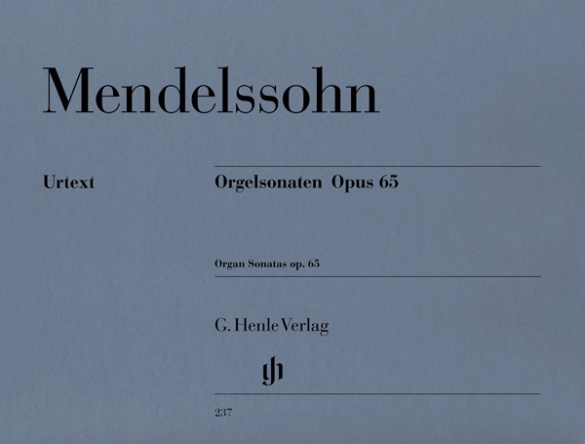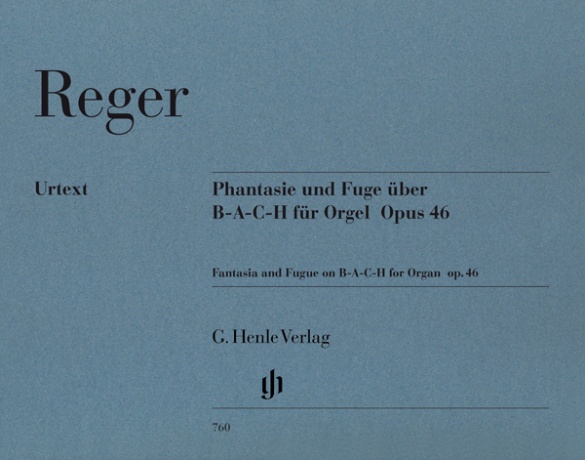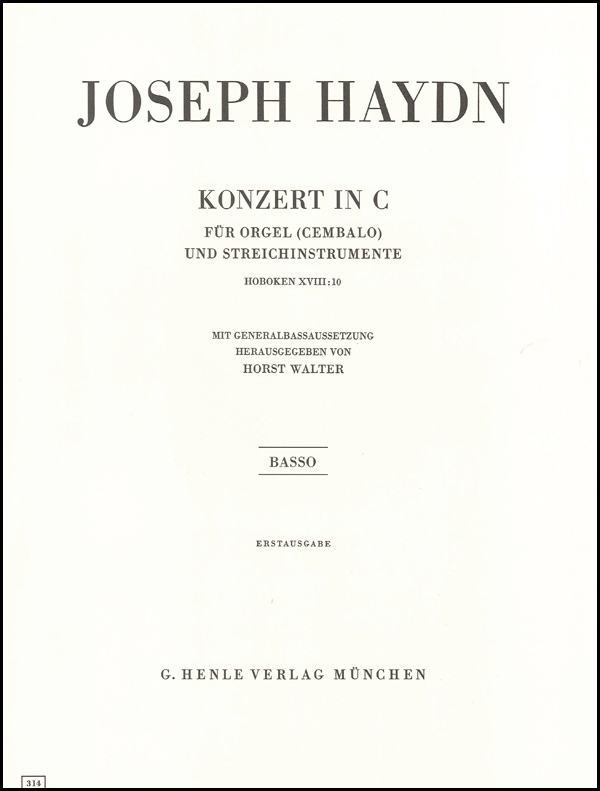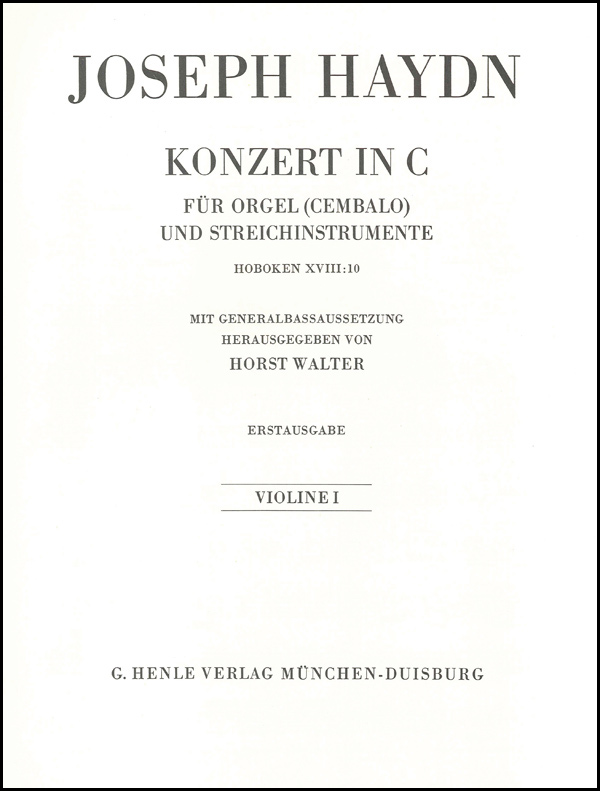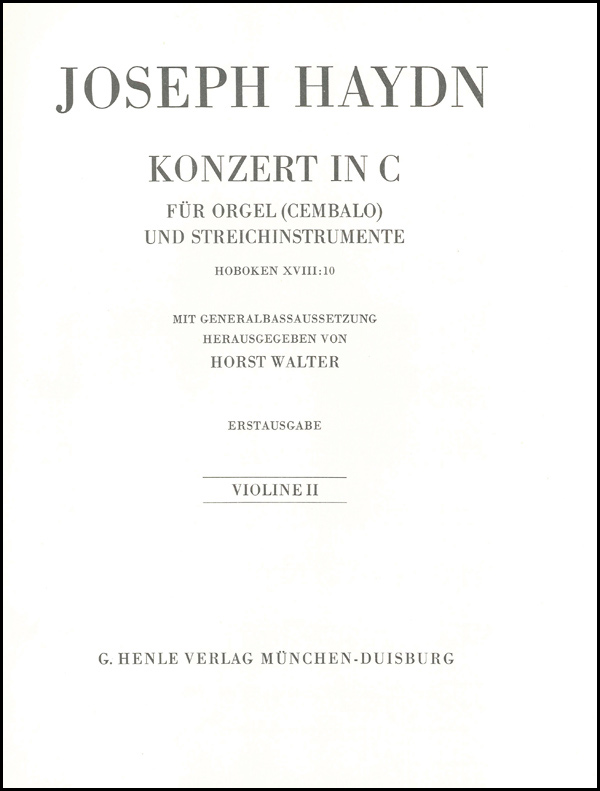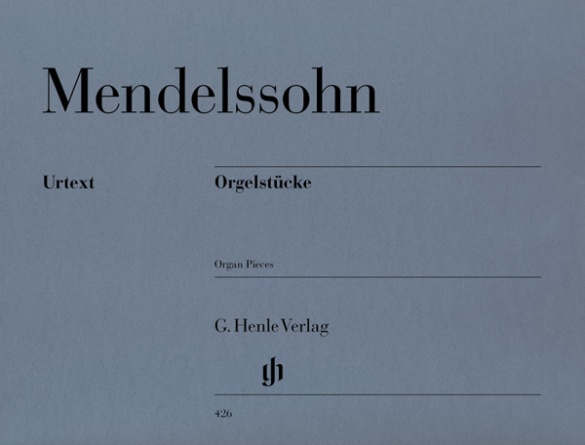

Felix Mendelssohn Bartholdy
Organ Pieces
Apart from his organ sonatas, Felix Mendelssohn also composed numerous other works for the king of instruments. The present volume focuses on a selection of eight works from Mendelssohn’s maturity, including the three “Preludes and Fugues”, op. 37. This group of works is, without exaggeration, one of the first important organ works of the 19th century, with which Mendelssohn heralded the second era of organ music after the baroque. The editor of this Urtext edition, organ specialist Wolfgang Stockmeier, explains in his extensive preface how Mendelssohn based his polyphonic works for keyboard instruments on Handel’s, rather than on Bach’s, compositional technique.
Content/Details
About the Composer
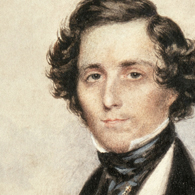
Felix Mendelssohn Bartholdy
A German composer, conductor, pianist, and organist who already numbered among the most important composers in Europe during his lifetime. While still young he found a unique tonal language. Reflected in his oeuvre, which spans all genres, are the contradictory tendencies of the age – Classicism and Romanticism. His endeavors over the course his life to perform the works of Johann Sebastian Bach led to a “rediscovery” of that composer which continues unabated. His intensive engagement with Bach and his counterpoint influenced his own compositional technique.
| 1809 | Born into a wealthy banker’s family in Hamburg on February 3. Escape to Berlin with his parents in 1811. First musical instruction from his mother. |
| 1819 | He becomes a pupil of Carl Friedrich Zelter. |
| 1820 | Joins the Sing-Akademie in Berlin. |
| 1821–23 | Twelve sinfonias for strings. |
| 1825 | String Octet in E-flat major, Op. 20. |
| 1826 | Overture to “A Midsummer Night’s Dream,” Op. 21 |
| 1827 | Begins studies at the University of Berlin. |
| 1829 | Revival of Bach’s St. Matthew Passion in Berlin on March 11 and 21. Travels to England and Scotland. |
| 1829–30 | “Reformation” Symphony in D minor, [Op. 107], with inclusion of the choral “Ein feste Burg“ (A Mighty Fortress Is Our God.) |
| 1830–32 | Extended travels, including to Italy and France. Piano Concerto in G minor, Op. 25; Overture in B minor, Op. 26, “The Hebrides, or Fingal’s Cave” (1829–30). |
| 1833 | Music director in Düsseldorf. “Italian” Symphony in A major, Op. 90 (1830–33). |
| 1835 | Director of the Gewandhaus concerts in Leipzig. |
| 1836 | Premiere in Düsseldorf of his oratorio “St. Paul: Oratorio on Words of the Holy Bible,” Op. 36. |
| 1838-44 | Violin Concerto in E minor, Op. 64. |
| 1840 | Composition of “Hymn of Praise, a Symphony-Cantata on Words of the Holy Bible,” Op. 52. |
| 1841 | Berlin, in the service of the Prussian king. “Variations sérieuses” in D minor, Op. 54, for piano. |
| 1842 | Completion of Symphony No. 3 (“Scottish”) in A minor, Op. 56, with a songlike opening. |
| 1843 | Incidental music to Shakespeare’s “A Midsummer Night’s Dream,” Op. 61. Director of the newly founded Leipzig Conservatory. |
| 1846 | Premiere of his oratorio “Elijah,” Op. 70, in Birmingham. |
| 1847 | String Quartet in F minor, [Op. 80]. Death in Leipzig on November 4. |
About the Authors
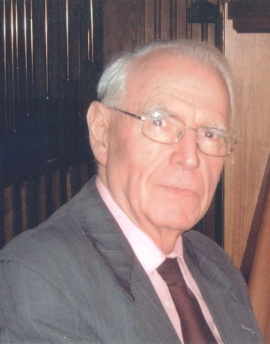
Wolfgang Stockmeier (Editor, Fingering Piano)
Prof. Dr. Wolfgang Stockmeier, born in 1931 in Essen, studied church music, school music, composition, musicology, German and philosophy in Cologne. In 1957 he did his doctorate and from 1957–1960 he worked in higher education in Essen, then as a head of department at the state teacher training college, before taking on a position as professor for organ, improvisation and composition at the music conservatory in Cologne until 1994. At the same time he was a lecturer at the University of Cologne and at the state church music schools in Düsseldorf and Herford for many years. In 1974 he became Head of the Institute for Protestant Church Music. From 1990 he was also pro-rector at the conservatory.
His international concerts lectures and jury activities have taken him to the USA and East Asia. He was awarded the “Deutscher Schallplattenpreis” for two of his recordings of organ music, of which he has made over 150. In addition to his work as an editor, he has published numerous compositions: four oratorios, three symphonies, an opera, (libretto by Gabriele Wohmann), twelve organ sonatas, three piano sonatas, as well as chamber music works and motets. Wolfgang Stockmeier died on 11 December 2015.
Product Safety Informations (GPSR)

G. Henle Verlag
Here you can find the information about the manufacturer of the product.G. Henle Verlag e.K.
Forstenrieder Allee 122
81476 München
Germany
info@henle.de
www.henle.com
recommendations
autogenerated_cross_selling
Further editions of this title
Further editions of this title


